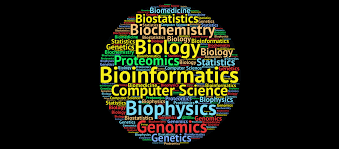
Principal speaker
Liz Ryan
Other speakers
A/Prof Jessica Mar, Dr Sally Wasef, Dr Ido Bar, Tessa Page
The stats-in-action mini-symposia on methods involving statistics are designed to showcase the variety of ways in which Griffith researchers and friends have put statistics to good use, in practice, to support an evidence-based approach to research.
Bioinformatics is a rapidly growing field of research and has become increasingly important for biomedical research, but also has potential to cross-fertilize with other fields. This online mini-symposium will bring together researchers from across Griffith University and south-east Queensland to explore exciting applications of big data (including 'omics') technologies and demonstrate the use of bioinformatics and statistical methods to analyse and interpret these data. Topics include:
- Analysis of omics data (e.g., multivariate techniques using PCA, PLS, PLS-DA, CCA)
- Mass spec analytics
- Single cell omics
- Epigenetics/genomics
Agenda
11.30 am - Welcome
11.35 am - Leveraging statistical shapes in genomics: looking beyond what's Normal
Speaker: A/Prof Jessica Mar
In genomics, we often assume that continuous data, such as gene expression, follows a single type of statistical distribution. However, we rarely stop to question the validity of this assumption. Is continuous genomic data, such as gene expression, normally distributed and does this distribution apply uniformly to every gene measured in the genome?
12.15 pm - Exploring ancient DNA for Australian dingoes to understand their origins and to develop a cost-effective SNP based array for inbreeding testing
Speaker: Dr Sally Wasef
Archaeological evidence suggests dingoes did not make their way to Australia before c. 5000 -years ago, while mitochondrial DNA indicates that dingoes descended from East Asian dogs as much as 18,000-years-ago. Apart from these dates, we know very little about dingo genetics, geographical origins, exact time of arrival, and who commensally brought dingoes to the continent. We also have little understanding of what makes dingoes' purebred' or the effects of interbreeding with other wild and domestic dogs change their visual appearance. Today, this lack of knowledge affects the conservation of this iconic native mammal. To date, not one study has looked into the use of ancient dingo genomes to answer any of these dingo identities related questions.
12.30 pm - Improving performance of high-throughput sequence similarity searches using a divide-and-conquer strategy and High-Performance Computing clusters
Speaker: Dr Ido Bar
Annotation of unknown sequences is often done by comparing it to a database of known sequences and finding the most similar match in a process that is called homology search. BLAST is THE most common bioinformatics tool for homology searches as it allows searching for a match in the NCBI public sequence databases with incredible efficiency for a small number of queries. However, with ever increasing number of sequences in the databases and despite some algorithm improvements in recent releases, annotating large batches of queries, had become a major challenge due to the computing time and memory that are required. This study aimed at optimising BLAST searches for whole genomes/transcriptomes by a divide-and-conquer strategy, utilising HPC architecture and recent algorithm improvements that allow limiting the search to specific taxonomic groups.
12.50 pm - Compiling and characterising de novo transcriptomes for tropical coral reef algae and investigating transcriptomic response to global change using Trinotate
Speaker: Tessa Page
Crustose coralline algae (CCA) are red, calcifying macroalgae that play essential ecological roles on tropical coral reefs worldwide, by reef building in their own right and inducing the settlement of coral and other economically and ecologically important invertebrates (i.e. abalone and sea urchins). Despite their well-documented importance to coral reefs, molecular information on this group of algae is limited to virtually non-existent. Therefore, we sought out to compile and characterise four de novo transcriptomes for species of CCA and then further use these transcriptomes as reference transcriptomes to analyse transcriptomic response to global change variables, i.e. elevated temperature and reduced pH.
1.15 pm - Panel Discussion
1.30 pm - Close
You can attend all the sessions or just those of interest to you by logging on at the appropriate time.
Prize
We thank the Statistical Society of Aust (Inc) and Qld CyberInfrastructure Foundation (QCIF) for supplying prizes for the presenters.
Please follow the below link for a full breakdown of each discussion.
Book of Abstracts - MiniSym - BioInformatics Big Data Analytics